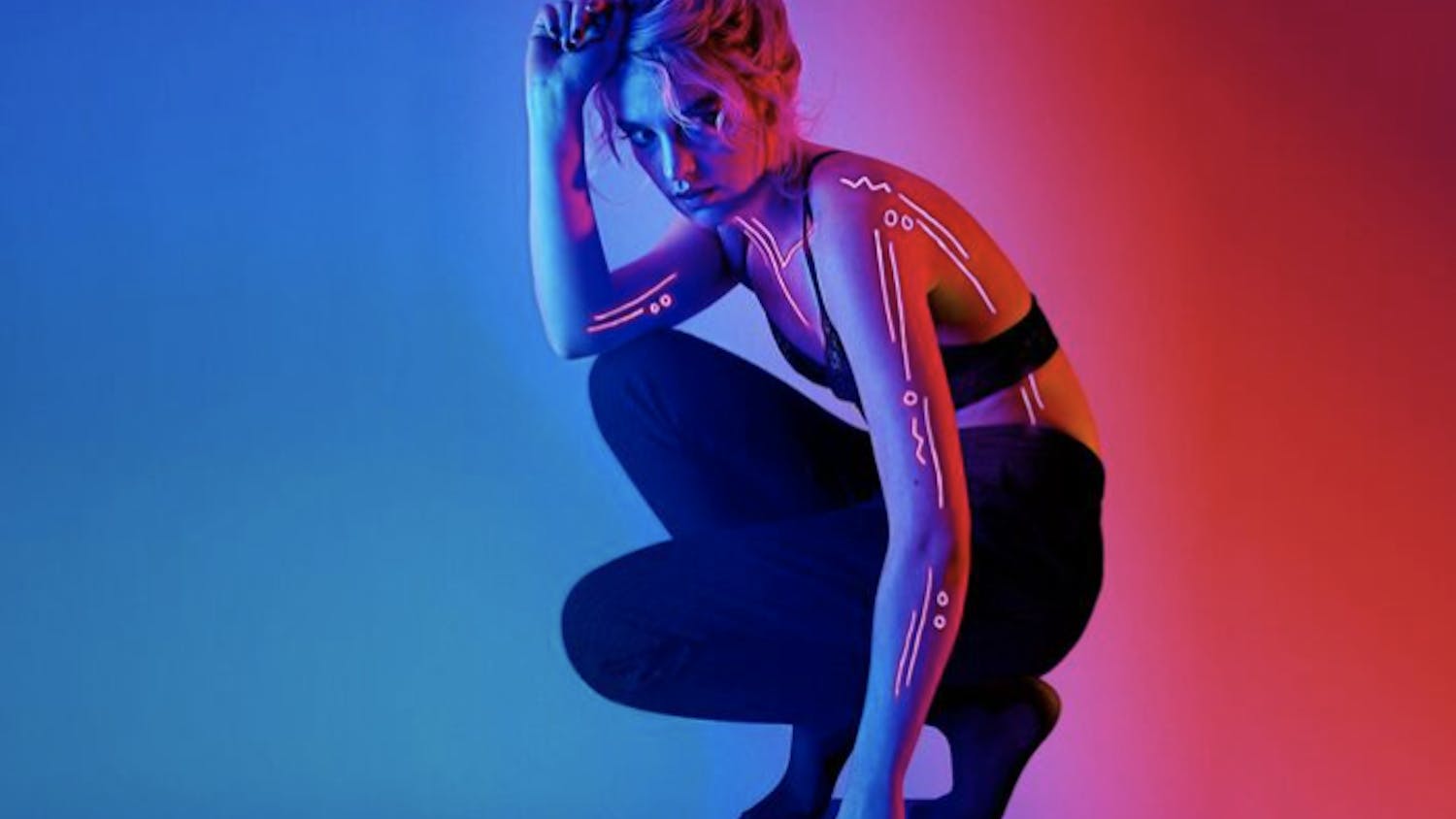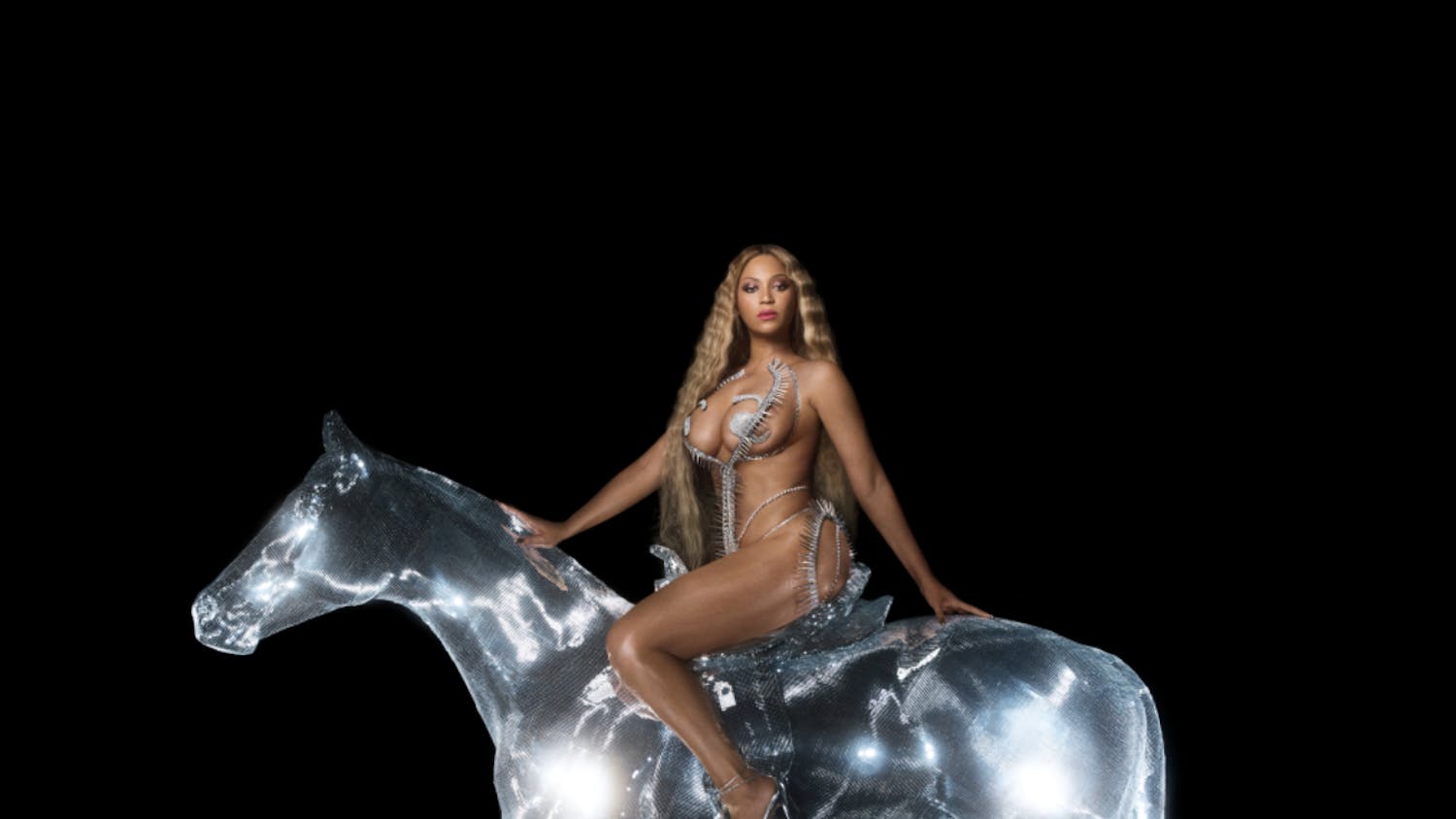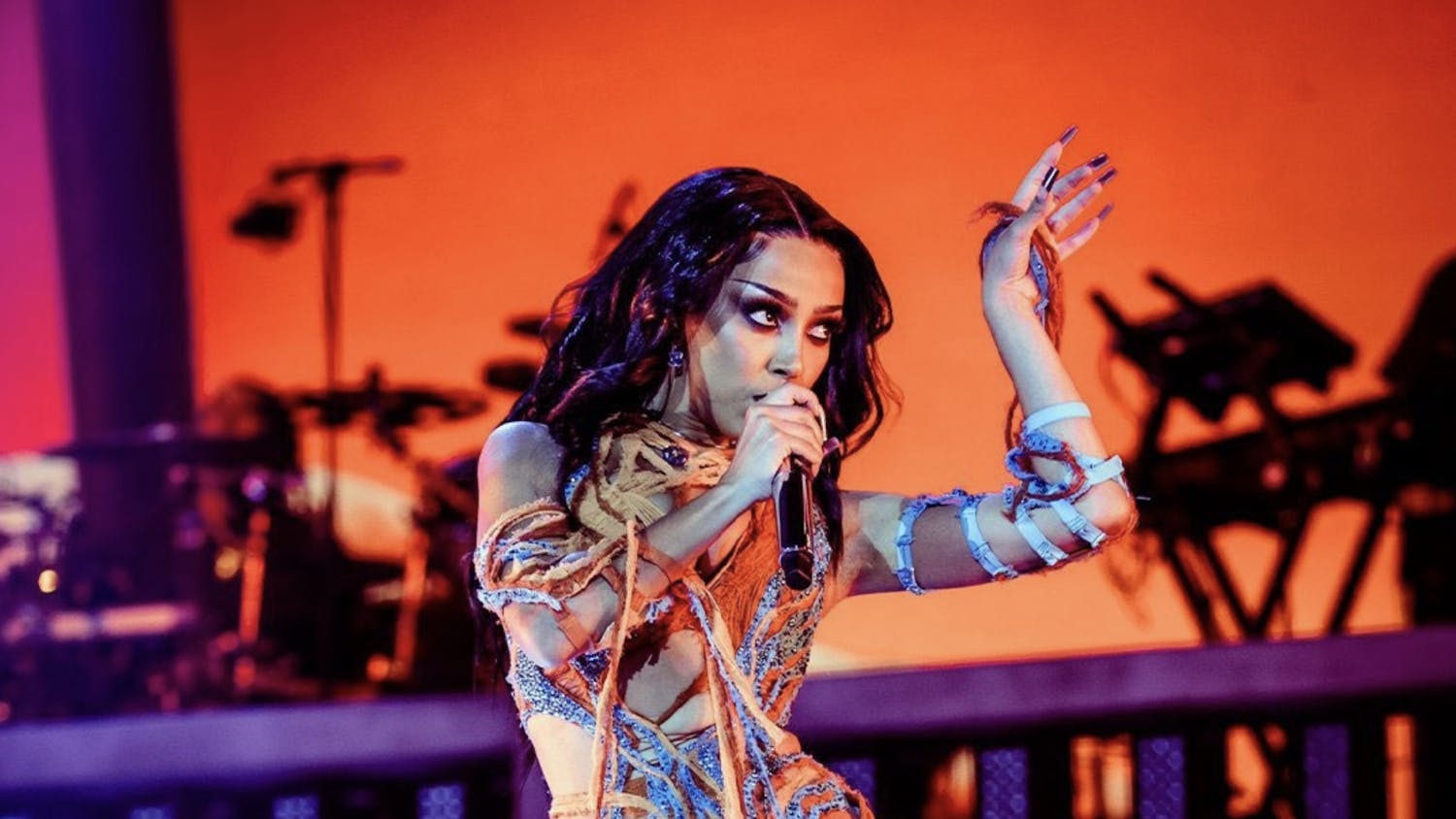Rosalía is an artist who has taken the world by storm, integrating the essentials of hyper-pop music into the flamenco culture of her home country, Spain. From being featured in the music video for Megan Thee Stallion and Cardi B’s “WAP” to selling out venues on her current “MOTOMAMI World Tour,” the singer has broken barriers as a Hispanic pop star, merging the gap between American and Latin music.
Rosalía’s first inkling of musical talent can be attributed to her parents’ watchful eyes, noticing that their daughter gravitated towards music playing from parked cars on her way to school. At age 9 her parents gave the singer her first guitar, leading her to also take up other instruments such as piano.
As the singer grew older, she was focused on creating a musical career for herself, attending the Taller de Musics school in Barcelona. Rosalía also worked with an accomplished flamenco teacher, Chiqui de La Linea, as well as vocal coach Jose Miguel Vizcaya to strengthen her musical abilities.
Taking a leap of faith, the singer auditioned for the singing competition, “Tu si que vales,” but was rejected. Yet, Rosalía still witnessed success after this setback, booking gigs at local bars and festivals. Her style increasingly became more influenced by flamenco, inspiring her to work as a flamenco teacher for a small period of time.
In 2017, Rosalía released her first album, “Los Angeles,” produced by Raul Refree. It was a national success, remaining on Spain’s music charts for 67 weeks. The singer was even nominated for the Latin Grammy’s “Best New Artist” award.
While she didn’t win the award, it didn’t deter the singer from making her next project bigger and better than her previous one. Just a year later, Rosalía dropped her sophomore debut, “El Mal Querer.” The album included several hit singles, including “MALAMENTE – Cap.1: Augurio.”
The song allowed for Rosalía to bridge international gaps, being used in Netflix’s “Elite.” After losing at the Latin Grammy’s a year prior, “MALAMENTE – Cap.1: Augurio” was also awarded “Best Alternative Song” and “Best Urban Fusion Performance.”
Following this merge into the mainstream, Rosalía earned appearances at highly acclaimed music festivals such as Coachella and Montreal’s Osheaga Festival, as well as an award show performance at MTV’s VMA Awards.
She also made waves through collaborating with American artists Billie Eilish and Travis Scott with songs “Lo Vas A Olvidar (with Rosalia)” and “TKN (feat. Travis Scott).”
Even after features with the music world’s biggest pop and hip-hop stars, Rosalía reverted back to creating another solo project, released this past March, called “MOTOMAMI.” With 16 songs, the album has been widely well-received, with many critics suggesting it to be the singer’s most experimental, weird and ambitious project to date.
Recently, one of the album’s lead singles, “BIZCOCHITO,” has gone viral on TikTok after the singer was seen chewing gum in between verses and making funny faces at her audience. Content creators have also made a dance for the song, causing a new trend to explode throughout the app.
With now the whole internet in awe of Rosalía’s humor, sense of style and confidence to experiment with multiple musical genres, it’s interesting to watch a Hispanic artist hold her own amongst many artists that sing in English, and do so with ease.
The singer has proven this on her current tour throughout Europe and soon the U.S., flawlessly performing flamenco-inspired dance routines and singing rap-like verses back to back without looking winded, all while sporting leather-infused costumes and her signature black waves.
Obviously, if you aren’t listening to Rosalía currently, you should be. She’s an international artist unafraid to delve into the unknown, not aiming to be anything but herself, which is rare in an industry that is known for producing carbon-copy acts. Overall, Rosalía is the epitome of what it means to defy musical norms, as well as the odds stacked against non-American artists.






